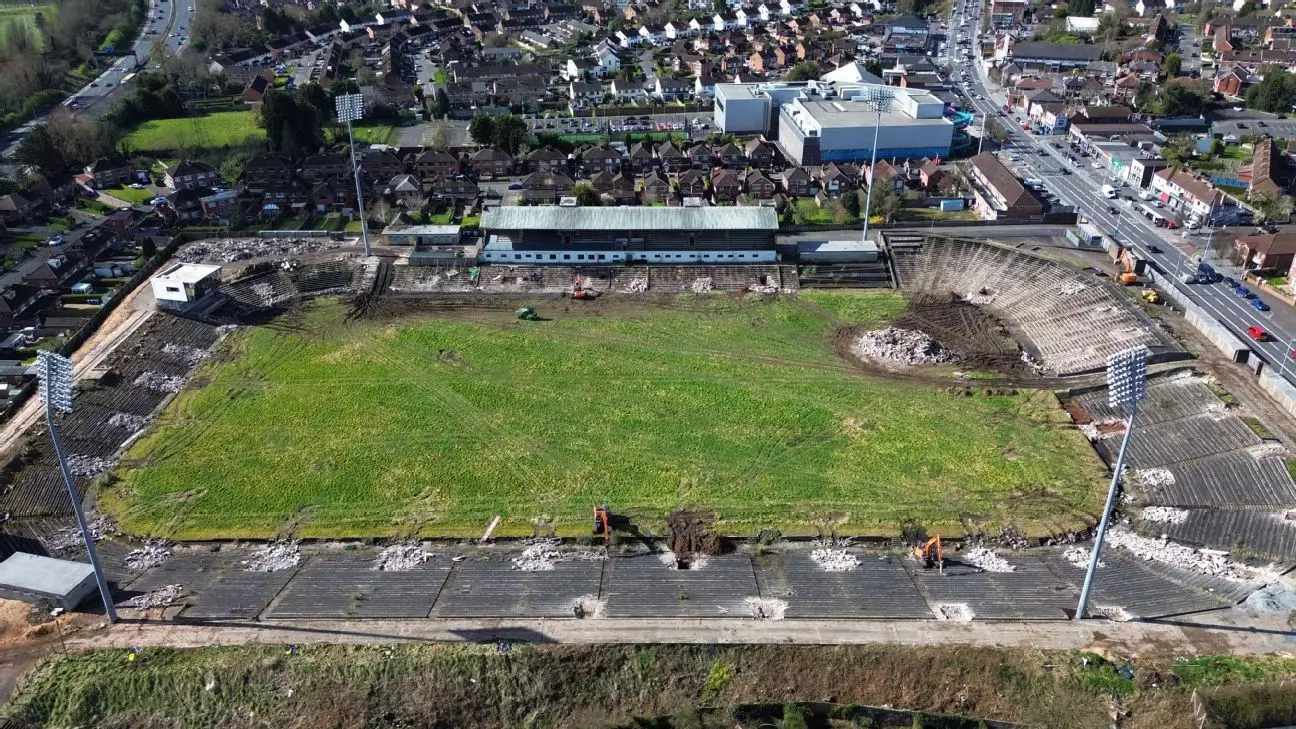The decision by the UK government to withdraw funding for the reconstruction of Casement Park represents a significant setback for Northern Ireland’s aspirations to host matches during Euro 2028. Originally earmarked to host five games, Casement Park’s redevelopment now appears untenable after projections for renovation soared from an estimated £180 million to over £400 million. This dramatic escalation in costs has rendered the project financially unfeasible, culminating in the UK government’s withdrawal of support and leaving Northern Ireland without a suitable venue for the prestigious tournament.
This decision is not merely a logistical inconvenience; it fundamentally undermines Northern Ireland’s presence on an international sporting stage. The initial UK and Ireland bid for Euro 2028, which secured the tournament for the region last October, was built on the premise of utilizing Casement Park as a cornerstone venue. The alternative, Windsor Park, was dismissed due to its limited capacity, which has further complicated the situation for Northern Irish football. This situation not only deprives the region of economic benefits that come with hosting such high-profile events, but it also raises questions about Northern Ireland’s ability to compete for future international sporting events.
In a joint statement by Northern Ireland Secretary Hilary Benn and UK Sports Minister Lisa Nandy, the rationale for the funding withdrawal was articulated. The ministers highlighted the burgeoning costs and the reality of potential delays in construction as key factors informing their decision. This move has been met with disappointment and frustration from local stakeholders, including government officials and sports enthusiasts alike, who see the loss of Euro 2028 as a significant blow to Northern Ireland’s sporting identity. The sentiments echo a broader disappointment among the public, many of whom had hoped that hosting Euro 2028 would not only showcase Northern Ireland to a global audience but also invigorate local economies and promote community pride.
With Northern Ireland now out of the picture for hosting Euro 2028 games, UEFA is forced to reevaluate venues within the UK and its neighbors. This situation poses logistical challenges as five matches will need to be redistributed among England, Scotland, Wales, and the Republic of Ireland. The uncertainty surrounding the tournament’s match scheduling may lead to fan dissatisfaction and logistical difficulties regarding travel and accommodations for supporters planning to attend.
This debacle serves as a wake-up call for stakeholders across the region, emphasizing the need for increased investment in sports infrastructure. As Northern Ireland grapples with the loss of a golden opportunity, there is an urgent need to rethink strategies for securing future sporting events. Stakeholders, including the government, local authorities, and sports organizations, must collaborate closely to ensure that infrastructure meets international standards. As the dust settles on the current debacle, a proactive and united approach may pave the way for Northern Ireland to reclaim its position in the global sporting landscape.

